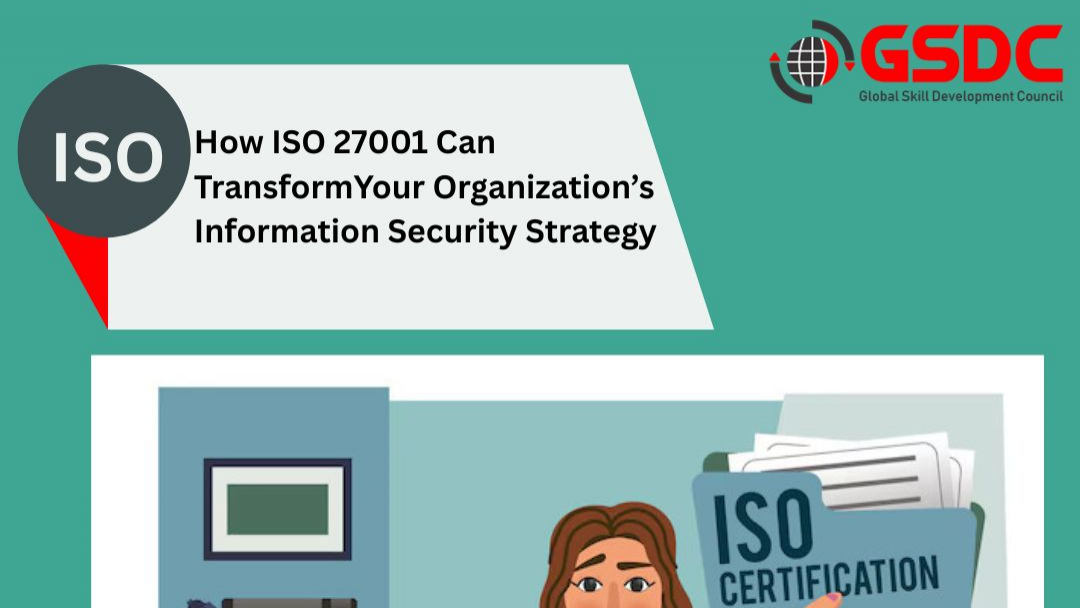In a world characterized by data breaches and cyber attacks, sound information security is no longer a nicety but an absolute requirement. Organizations are subject to mounting pressure to safeguard sensitive information, ensure customer confidence, and keep up with ever-changing regulatory standards. It is in this context that ISO 27001, the global standard for information security management systems (ISMS), comes in as a game-changer. With the use of ISO 27001, organizations can put in place a holistic and proactive information security approach. Individuals with ISO 27001 lead implementer qualifications play a vital role in doing so. Understanding the ISO 27001 Framework ISO 27001 presents a structured way of managing information security risks. It defines the requirements for the development, implementation, maintenance, and continuous improvement of an ISMS. Through this framework, organizations are able to effectively identify, assess, and mitigate information security risks. ISO 27001 places strong emphasis on a risk-based approach, customizing security controls to the particular needs of the organization. It encourages a culture of security awareness and ongoing improvement. It gives a systematic structure for documenting and managing information security processes. It facilitates compliance with a range of industry regulations and legal obligations. Revolutionizing Your Information Security Strategy with ISO 27001 Implementing a Risk-Based Approach: ISO 27001 mandates organizations to carry out rigorous risk assessments in order to ascertain potential threats and vulnerabilities. This allows organizations to prioritize security controls depending on the risk severity and sensitivity of information assets. Organizations can effectively use resources and concentrate on the most important security issues through the use of a risk-based approach. ISO 27001 lead implementer experts know how to conduct these calculations. Rolling Out Total Security Controls: ISO 27001 offers an inventory of security controls (Annex A) that organizations can use to counter identified risks. These controls span across multiple security domains such as access control, cryptography, and incident management. Organizations can choose and implement controls that meet their particular needs and risk profile. This aids in creating a layered defense policy. Encouraging a Culture of Security Awareness: ISO 27001 places a strong focus on security awareness and training for all staff. Through employee education on security best practices, organizations may mitigate human error and insider threats. Security awareness fosters a proactive work culture for information security across the organization. Staff who comprehend the ISO 27001 standard are essential to this. Maintaining Compliance with Rules: ISO 27001 can assist organizations in meeting numerous industry regulations and legal mandates for data protection. By adopting the standard's requirements, organizations can demonstrate their dedication to safeguarding sensitive information. It can increase customer confidence and diminish the likelihood of legal sanctions. The standard promotes a systematic route to compliance. Achieving Continuous Improvement: ISO 27001 encourages a pattern of continuous improvement, whereby organizations periodically review and revise their ISMS. It ensures that the ISMS stays effective and meaningful in the midst of changing threats and technologies. Frequent management reviews and audits enable organizations to determine areas for improvement and take corrective measures. Continuous improvement is one of the essential elements of the standard. Stakeholder Trust Improvement: Being certified with ISO 27001 reflects an organization's commitment to using best practices in information security. This helps improve stakeholder trust, such as that of customers, business partners, and regulators. It creates a competitive edge by highlighting a robust security stance. Improving trust is at the heart of ISO 27001 benefits. Decreasing Security Incidents: By having strong security controls and a security-aware culture, organizations can minimize the risk of security breaches. This can avoid expensive data breaches, monetary losses, and reputational harm. An effectively implemented ISMS can also enhance incident response. Prevention is one of the main objectives of the standard. Enhancing Business Resilience: ISO 27001 assists organizations in creating business continuity and disaster recovery plans. This will ensure that business operations of high importance can be sustained in the case of a security breach or disaster. It improves the resilience and capacity to resist disruptions of the organization. This is an important component of an effective security strategy. Streamlining Security Processes: ISO 27001 gives a systematic framework for documenting and handling information security processes. This can simplify security operations and make them more efficient. It also helps in knowledge sharing and cooperation among security staff. This standardization results in efficiency. Worldwide Recognition and Credibility: ISO 27001 is a globally acknowledged standard, allowing global credibility. Certification portrays an organization as following best practice in information security. This has the potential to create new business opportunities and associations. International standards assist with global business. For More Info :- https://www.gsdcouncil.org/certified-iso-27001-lead-implementer For More Enquiry:- 41444851189









